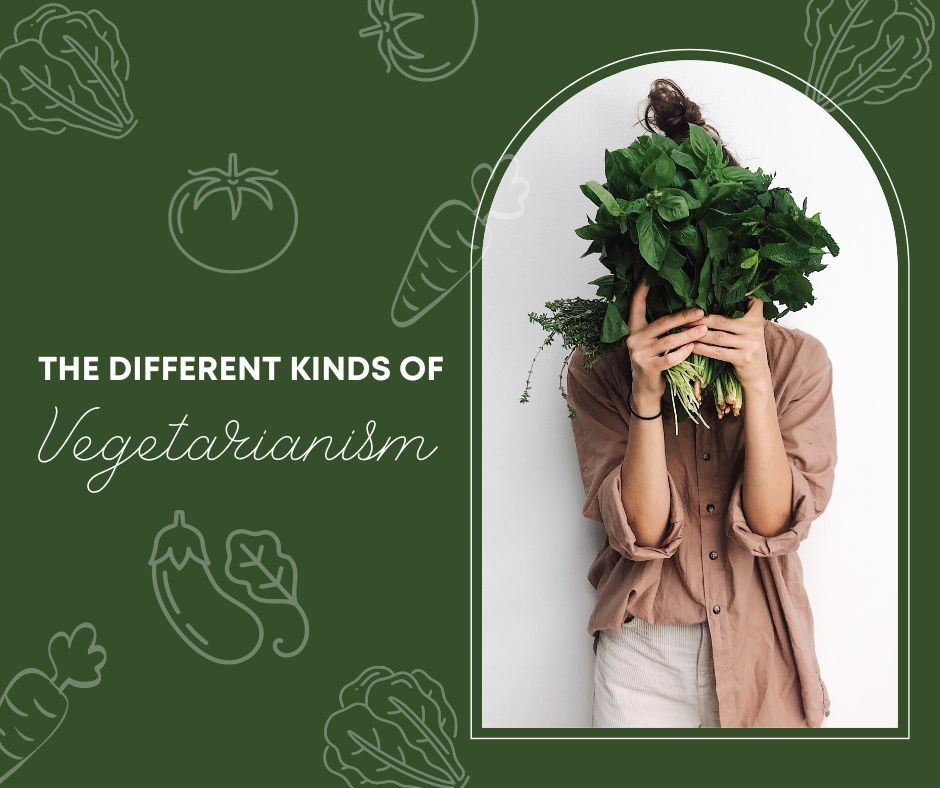The Different Kinds of Vegetarianism
There are several different types of vegetarians, each with its own dietary restrictions and beliefs. It’s important to know the difference between these kinds of vegetarianism so that we can accommodate their diets if they wish, whether they’re loved ones who suddenly want to become healthier versions of themselves or if you’re a restaurant owner who wishes to expand their menu.
1. Lacto-Vegetarianism
Lacto-vegetarianism is a type of vegetarianism that involves consuming plant-based foods, as well as dairy products but excludes meat, fish, and eggs. The term “lacto” comes from the Latin word for milk, and vegetarians who follow this diet consume dairy products such as milk, cheese, and yogurt. It is considered to be one of the most popular types of vegetarianism.
It can be a healthy diet if it is well-planned and balanced but may lack enough iron, zinc, vitamin B12, and omega-3 fatty acids.
2. Ovo-Vegetarianism
Ovo-vegetarianism is a kind of vegetarianism that allows eggs as well as other plant-based foods. It excludes meat, fish, dairy products, and any other animal-derived products. The term “ovo” comes from the Latin word for egg, and it is one of the less popular types of vegetarianism, possibly due to the lack of vitamin B12 and calcium in the diet.
3. Lacto-Ovo Vegetarianism
As we mentioned earlier, “lacto” is the Latin word for milk while “ovo” is the Latin word for egg. So, you can probably guess what this kind of vegetarianism entails!
Lacto-ovo vegetarianism is one of the most popular kinds of vegetarianism. It doesn’t involve eating any animal flesh and instead just eats animal by-products such as milk, eggs, and also honey as it is produced by bees. This allows them to get plentiful health benefits from these products without the moral or ethical repercussions of killing animals.
4. Pescatarianism
Pescatarianism is a type of diet that involves consuming mostly plant-based foods and sometimes seafood like fish, squid, shrimp, octopus, and more. The term “pescatarian” is derived from the Italian word for fish, “pesce”.
Pescatarianism is becoming more popular because it is considered a more sustainable diet as it reduces the consumption of land-based animal products and also it provides the benefits of consuming fish which are a rich source of omega-3 fatty acids, vitamins, and minerals.
5. Flexitarianism
Well, flexitarians aren’t exactly rigid vegetarians in all senses of the word, but they do follow the vegetarian diet for the most part. They mostly eat plant-based food but will occasionally dabble in animal-based meals, and the frequency differs across people.
Think about it like someone trying to lose weight—they mostly eat clean things like fruits and vegetables but will occasionally eat candy and chips if they’re craving it. The same goes for flexitarianism. Here, they can reap the benefits of a plant-based diet while still “cheating” by eating animal products once in a while.
6. Fruitarians
On the other side of the spectrum from flexible, you’ve got fruitarians who are incredibly strict with what they eat. Not only do they refuse to kill animals for their own meals, but they also refuse to kill vegetables! They only eat fruits, nuts, and seeds that have fallen from the tree and don’t actually harm the plant when they’re being harvested. That takes a lot of willpower, don’t you think?
7. Raw Veganism
Then, you’ve got these even stricter vegetarians, the raw vegans. These people only eat raw fruits, vegetables, nuts, and seeds. They do not do anything like cooking, steaming, or roasting these foods—it’s all raw so they can benefit from the vitamins, minerals, and fiber that is untouched by differences in temperature. Isn’t that crazy?
8. Veganism
Veganism is a type of vegetarianism that says goodbye completely to any animal by-products. Meat, seafood, eggs, milk, and honey are not allowed in a vegan diet. However, unlike raw veganism, veganism allows you to do anything you’d like with your plant-based foods, allowing you to get creative with what you do with fruits and vegetables. Who knew we could ever live in a world with vegan chicken tenders, hamburgers, and pizza?
Conclusion
Each type of vegetarianism is based on different ethical, moral, environmental, and health considerations. Some may choose to follow a specific type of vegetarianism based on their religious beliefs, while others may choose it for health reasons. Some vegetarians may also follow more than one type of vegetarianism at different times in their lives. Whatever kind of vegetarianism you follow, it has a lot of health benefits for both the mind and body.
HERE are several Westwood restaurants catering to vegetarianism.



